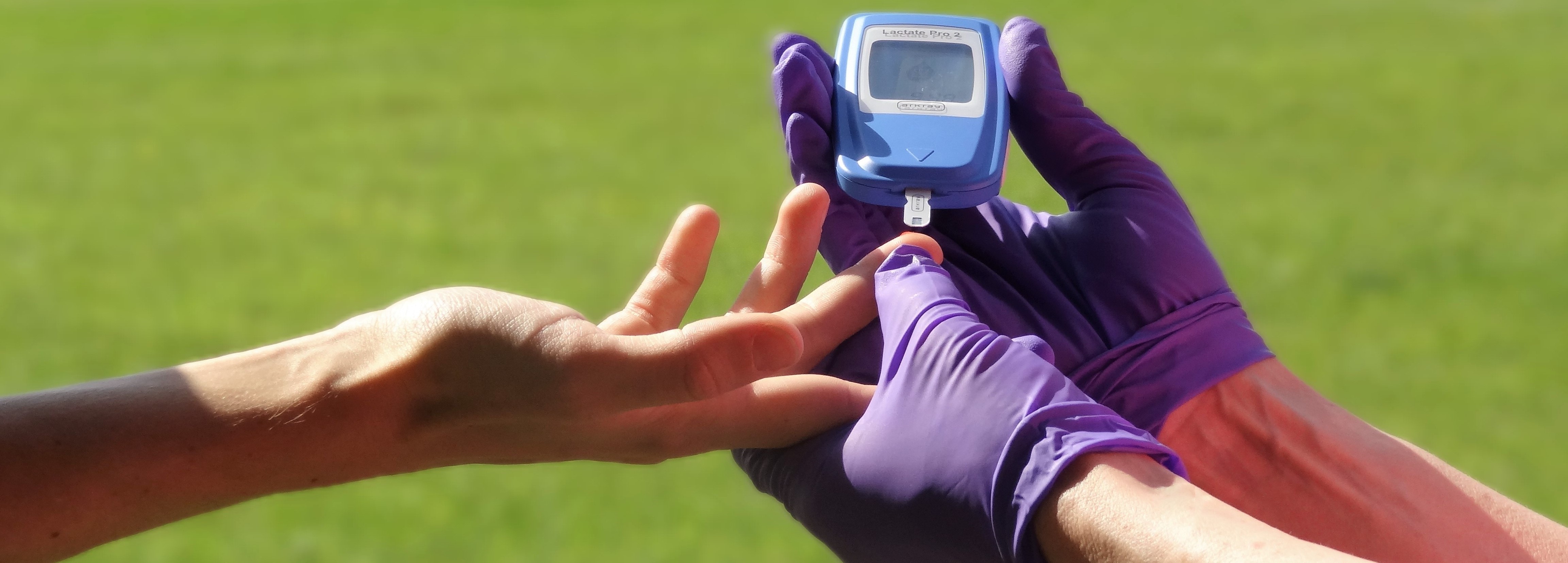
From a recreational runner to a professional athlete, monitoring lactate can identify how your body is responding and how training can be adapted.
For cyclists, swimmers and triathletes wishing to understand their performance and guide training, explore further here.
One-to-one support is also available for athletes and groups looking for further bespoke guidance, helping your well-being and performance along your sporting journey.
LACTATE PROFILE ASSESSMENT
During an incremental treadmill run, monitoring lactate at certain stages can establish your current training zones, identify the effectiveness of a training block and how to adapt training accordingly.
All assessments include the Athlete Assessment (Hydration and Lactate Profile) and a Physiological Report (including Explanation, Graph of Results and Guidance for Training).
Assessments take place at the University of Brighton, Falmer Campus; or anywhere with access to a treadmill (prior agreement required first).
SESSION LACTATE
As well as reviewing progress, monitoring sessions can inform you and your coach if training intensity should be adjusted, ensuring your sessions are individual to you. Depending on your distance and time in the season, this can include Threshold, Tempo or Interval sessions.
In addition to your Assessment, you will also receive a 1-2 Page Report (including Graph of Results and Brief Advice and/or discussion with your coach).
Assessments can take place at the University of Brighton, Falmer Campus, or anywhere with access to a treadmill (prior agreement required first); or ‘in the field’ at an athletics track or trail.
For further information on what the assessments entail, cost and group bookings, contact us.
LACTATE PROFILING: CYCLING AND SWIMMING
During a ride or swim of increasing workload, your lactate response will be monitored. Certain physiological landmarks can be identified (lactate thresholds and maximal aerobic power/speed), helping establish the effectiveness of a training block and guide future training.
Assessments include the Athlete Assessment (Hydration and Lactate Profile) and a Physiological Report (including Explanation, Graph of Results and Training Zones).
For cyclists, the assessment can continue to maximum effort for athletes in cycling and triathlon requiring information on Maximal Aerobic Power.
In swimming, across a number of separate visits, assessing Maximal Lactate Steady State (MLSS) can establish the highest pace that you can hold, without progressive fatigue. As well as reviewing progress, MLSS is deemed an important physiological landmark in swimming, to inform you and your coach if training intensity should be adjusted. In addition to your Assessment, you will also receive a 1-2 Page Report (including Graph of Results and Brief Advice and/or discussion with your coach).
Cycling assessments take place at the University of Brighton, Falmer Campus (with your own bike and trainer, or alternative option with prior agreement). Swimming assessments take place in a 25m private pool in Sussex, or the Sea Lanes National Open Water Swimming Centre.
Please note, pricing has not been published due to varying locations, and Session Lactate and MLSS monitoring based on the number of samples required. As a guide, assessments start from £50.
With good transport links available from London and across Sussex, athletes travel from afar, including Surrey, Kent, Essex and Hampshire. For those based outside the South East of England, or in endurance training (including Ultra distance, the Trail marathon and Ironman), feel free to email us and we’ll aim to help.